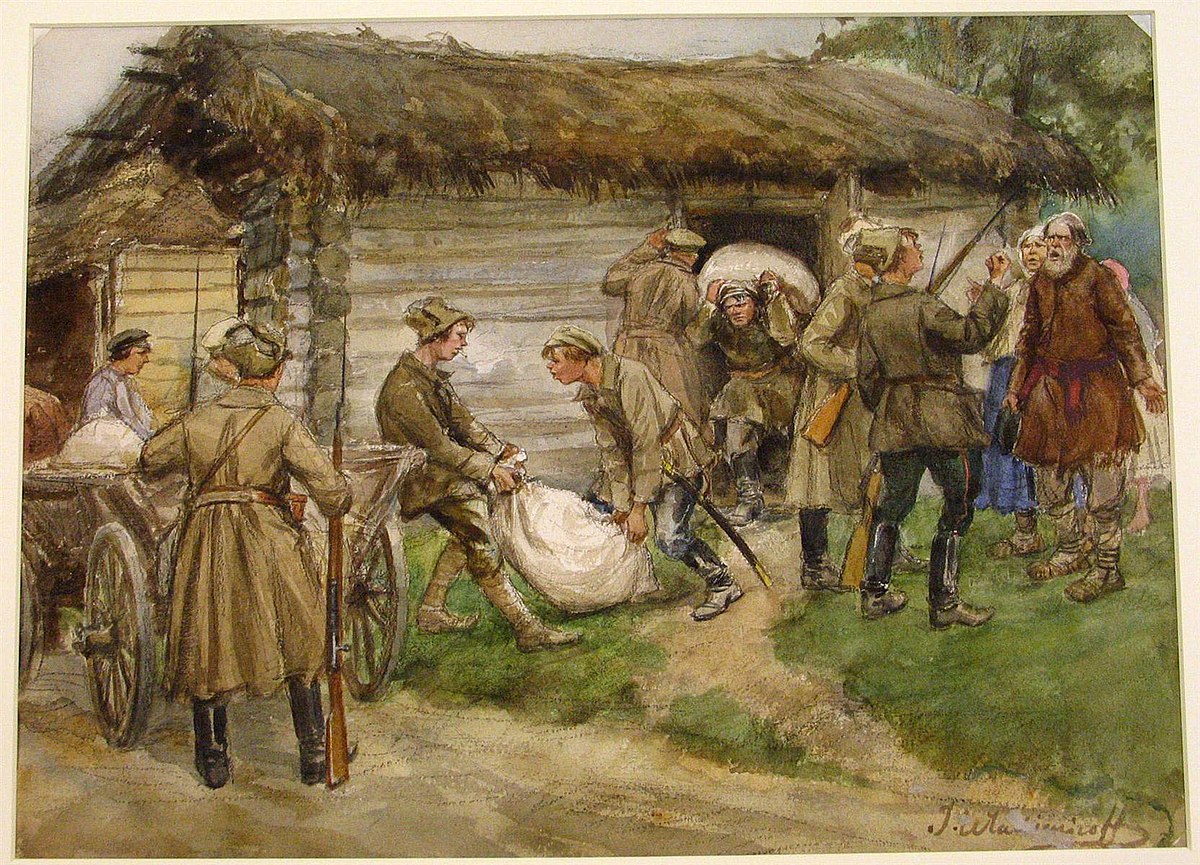
War communism
RussiaAccording to Soviet historiography, the ruling Bolshevik administration adopted War communism, the policy with the goal of keeping towns (the proletarian power-base) and the Red Army stocked with food and weapons since circumstances dictated new economic measures. During the civil war, the old capitalist market-based system was unable to produce food and expand the industrial base. War communism has often been described as simple authoritarian control by the ruling and military castes to maintain power and control in the Soviet regions, rather than any coherent political ideology.
War communism included the following policies:
- Nationalization of all industries and the introduction of strict centralized management
- State control of foreign trade
- Strict discipline for workers, with strikes forbidden
- Obligatory labor duty by non-working classes ("militarization of labor", including an early version of the Gulag)
- Prodrazvyorstka – requisition of agricultural surplus (in excess of an absolute minimum) from peasants for centralized distribution among the remaining population
- Rationing of food and most commodities, with centralized distribution in urban centers
- Private enterprise banned
- Military-style control of the railways
Because the Bolshevik government implemented all these measures in a time of civil war, they were far less coherent and coordinated in practice than they might appear on paper. Large areas of Russia remained outside Bolshevik control, and poor communications meant that even those regions loyal to the Bolshevik government often had to act on their own, lacking orders or coordination from Moscow. It has long been debated whether "war communism" represented an actual economic policy in the proper sense of the phrase, or merely a set of measures intended to win the civil war.
The goals of the Bolsheviks in implementing war communism are a matter of controversy. Some commentators, including a number of Bolsheviks, have argued that its sole purpose was to win the war. Vladimir Lenin, for instance, said that "the confiscation of surpluses from the peasants was a measure with which we were saddled by the imperative conditions of war-time." Other Bolsheviks, such as Yurii Larin, Lev Kritzman, Leonid Krasin, and Nikolai Bukharin, argued that it was a transitional step towards socialism. War communism was largely successful at its primary purpose of aiding the Red Army in halting the advance of the White Army and in reclaiming most of the territory of the former Russian Empire thereafter.
In the cities and surrounding countryside, the population experienced hardships as a result of the war. Peasants, because of the extreme scarcity, were beginning to refuse to co-operate in giving food for the war effort. Workers began migrating from the cities to the countryside, where the chances to feed themselves were higher, thus further decreasing the possibility of barter of industrial goods for food and worsening the plight of the remaining urban population, economy and industrial production. Between 1918 and 1920, Petrograd lost 70% of its population, while Moscow lost over 50%.
